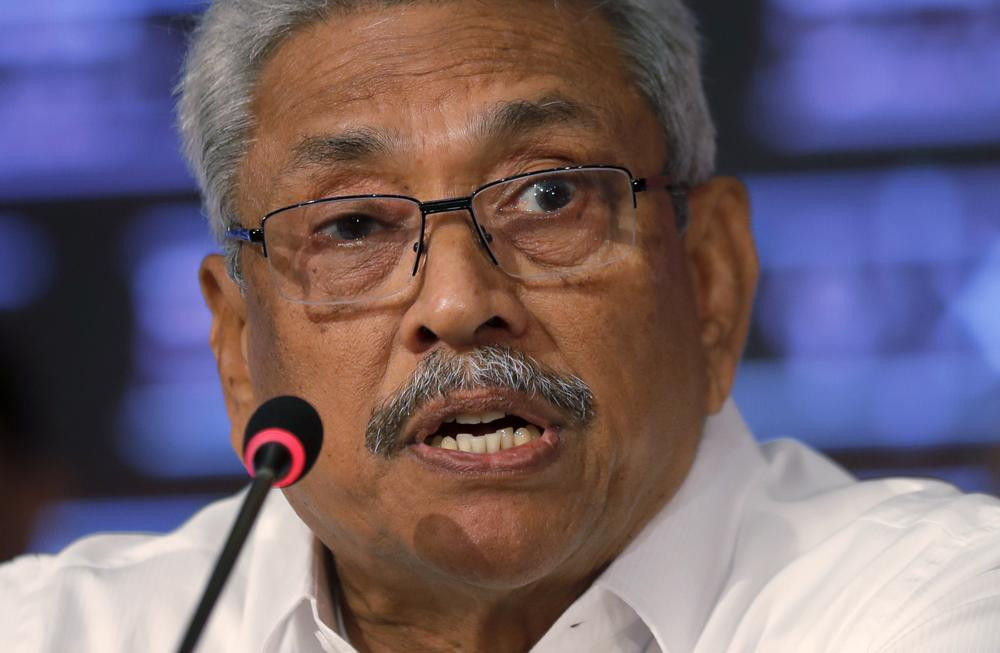A human rights group said Sunday it had filed a criminal complaint with Singapore’s attorney general to seek the arrest of Sri Lanka’s former president for alleged war crimes during his country’s civil war.
Gotabaya Rajapaksa was ousted from office over his country’s economic collapse and fled to Singapore earlier this month. He was defense secretary during Sri Lanka’s civil war, which ended in 2009.
The International Truth and Justice Project — an evidence-gathering organization administered by a South Africa-based nonprofit foundation —said its lawyers filed the complaint requesting Rajapaksa’s immediate arrest. The complaint alleges Rajapaksa committed grave breaches of the Geneva Conventions during the civil war “and that these are crimes subject to domestic prosecution in Singapore under universal jurisdiction.”
Sri Lanka’s economic crisis has left the nation’s 22 million people struggling with shortages of essentials, including medicine, fuel and food. Months of protests have focused on the Rajapaksa political dynasty, which has ruled the country for most of the past two decades.
“The economic meltdown has seen the government collapse, but the crisis in Sri Lanka is really linked to structural impunity for serious international crimes going back three decades or more,” said the ITJP’s executive director, Yasmin Sooka.
“This complaint recognizes that it’s not just about corruption and economic mismanagement but also accountability for mass atrocity crimes,” she added.
Sri Lanka’s civil war killed 100,000 people, according to conservative United Nations estimates. The actual number is believed to be much higher. A report from a U.N. panel of experts said at least 40,000 ethnic minority Tamil civilians were killed in the final months of the fighting alone.
Tamil Tiger rebels fought to create an independent state for ethnic minority Tamils. The country’s ethnic Sinhala majority credited Gotabaya Rajapaksa and his elder brother Mahinda Rajapaksa with the war victory, cementing the family’s political dominance, though accounts of atrocities, autocratic governance and nepotism persisted.
Efforts to investigate allegations of war crimes were largely suppressed under Rajapaksa leaders.
After Gotabaya Rajapaksa fled the country earlier this month, lawmakers elected Ranil Wickremesinghe to serve the remainder of his presidential term. He declared a state of emergency with broad powers to act to ensure law and order, and a day after he was sworn in, hundreds of armed troops raided a protest camp outside the president’s office, attacking demonstrators with batons.
Rights groups have urged the president to immediately order troops and police to cease use of force and said Friday’s display seemed to follow a pattern of Sri Lankan authorities forcefully responding to dissent.
The political turmoil has threatened Sri Lanka’s potential for economic recovery. Wickremesinghe recently said bailout talks with the International Monetary Fund were nearing a conclusion.

